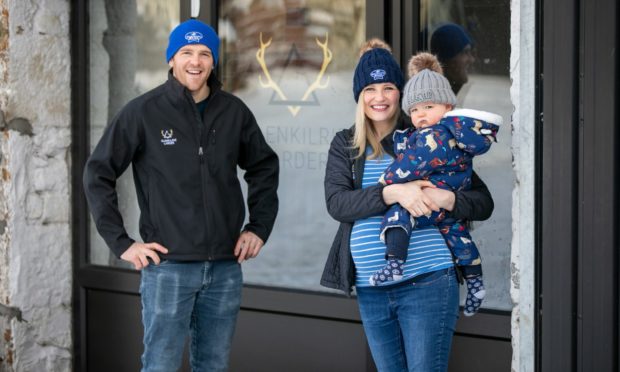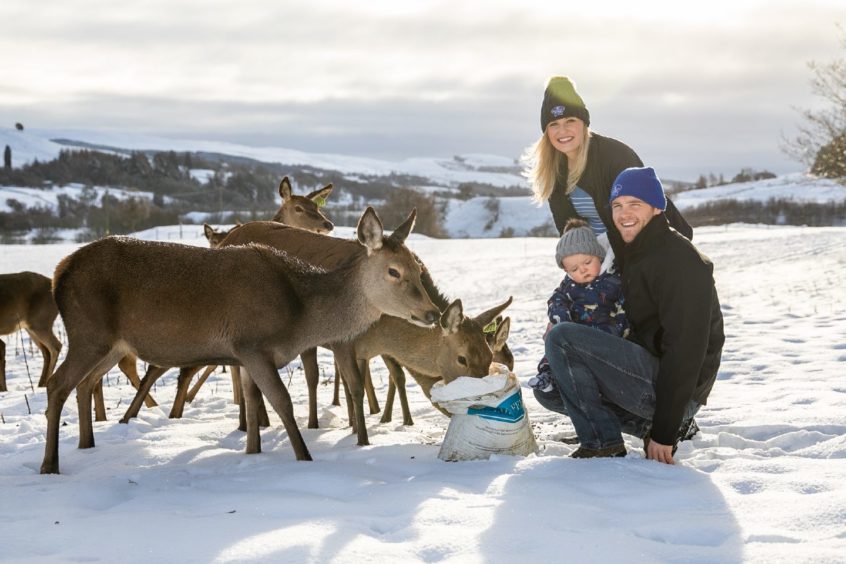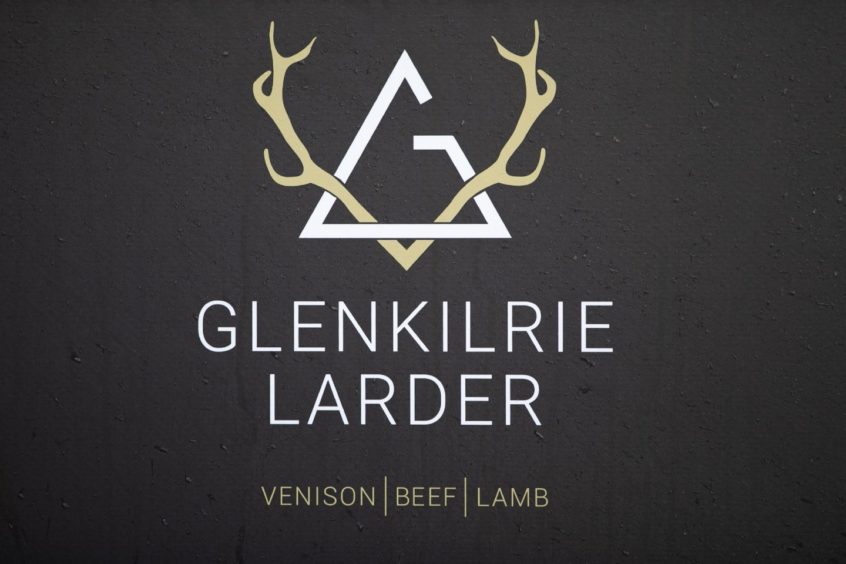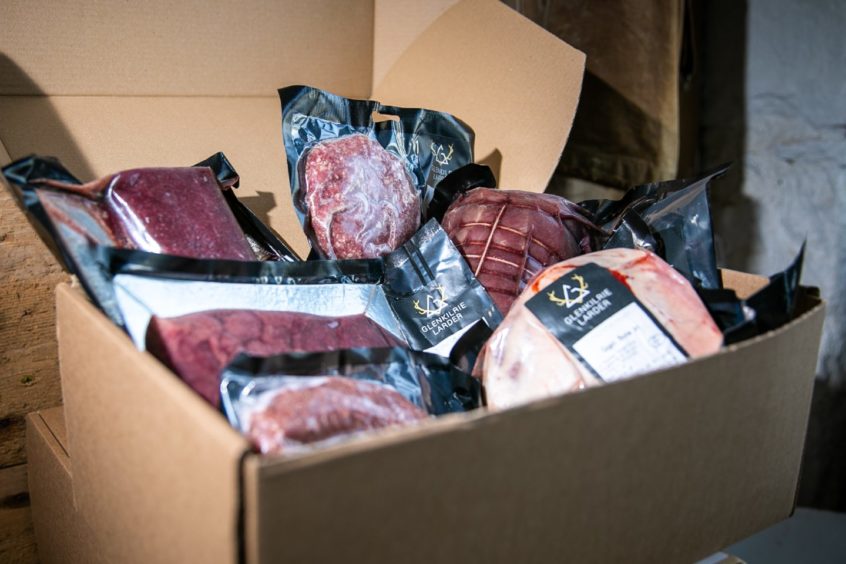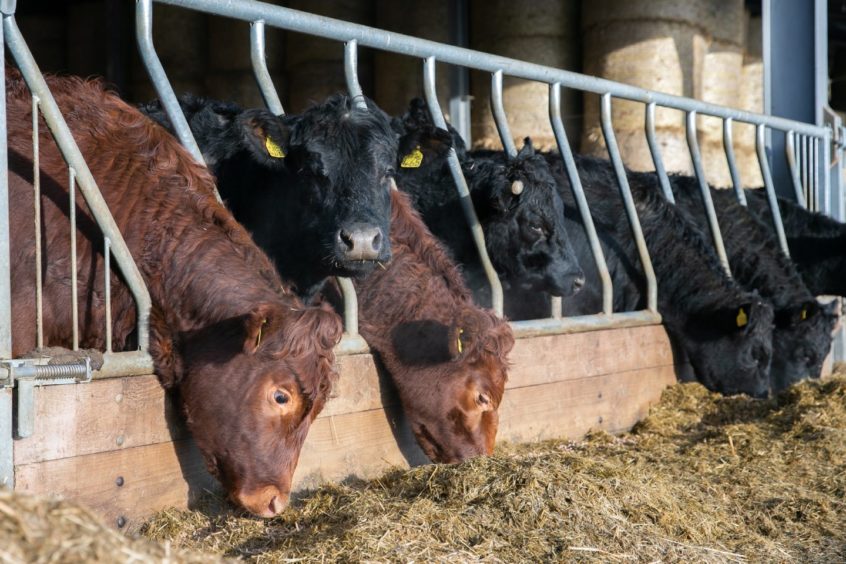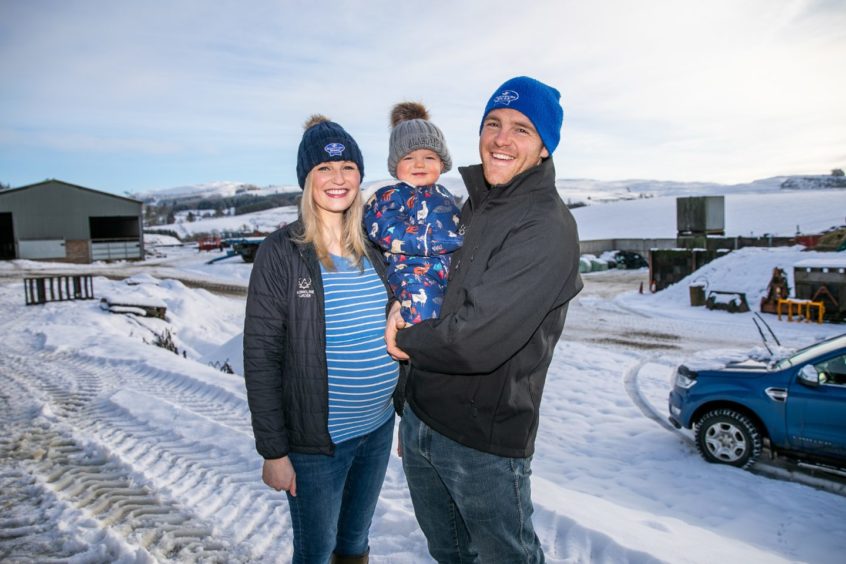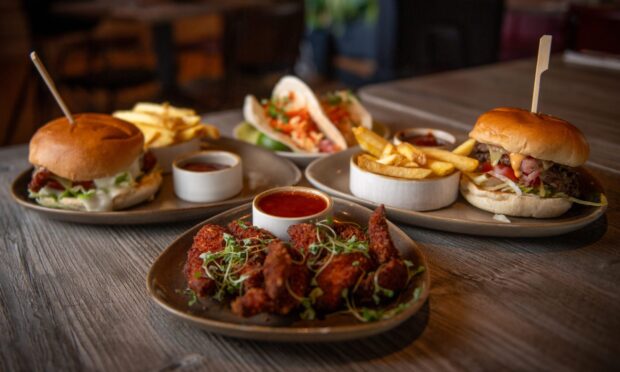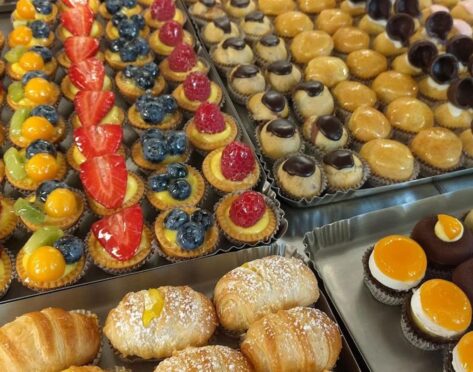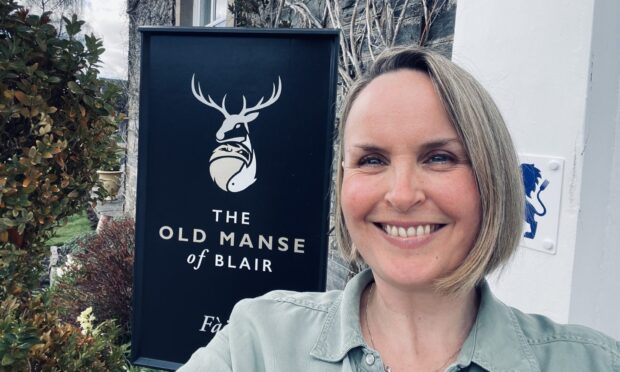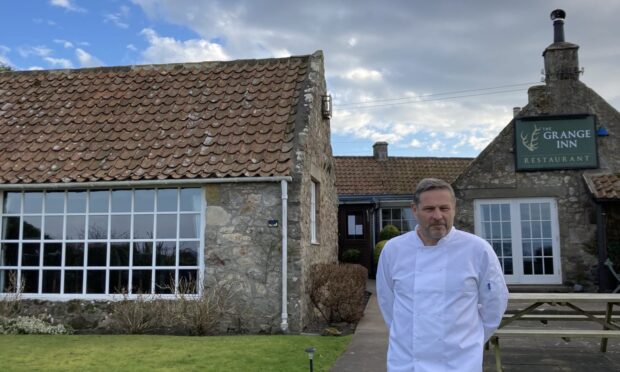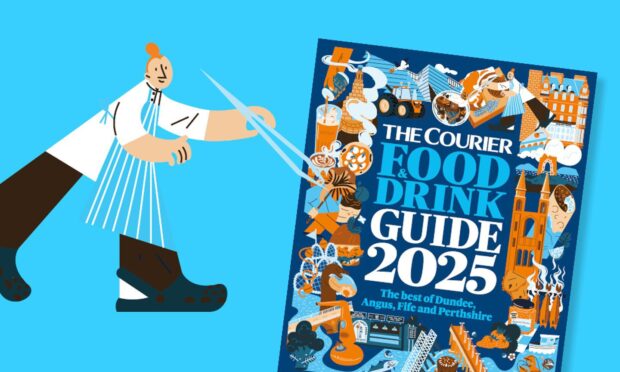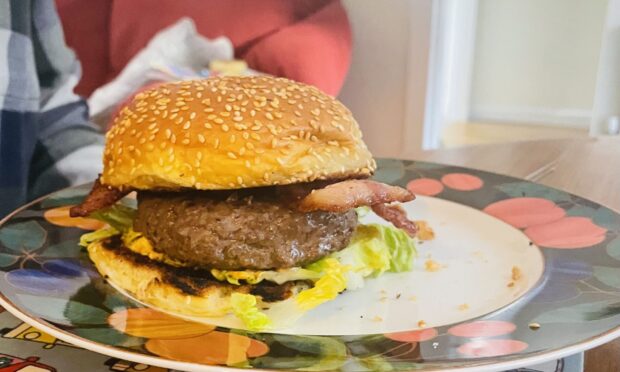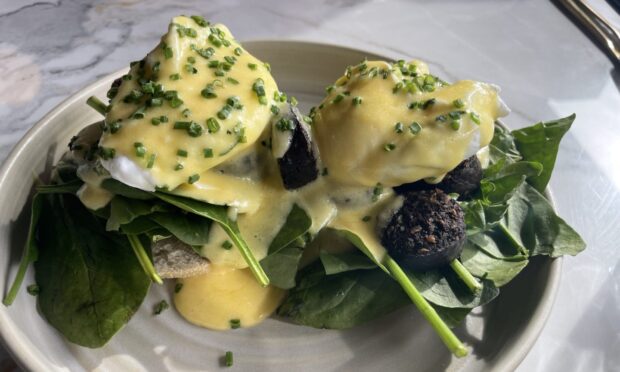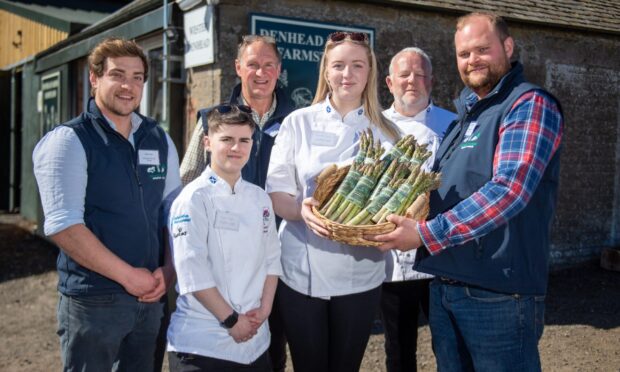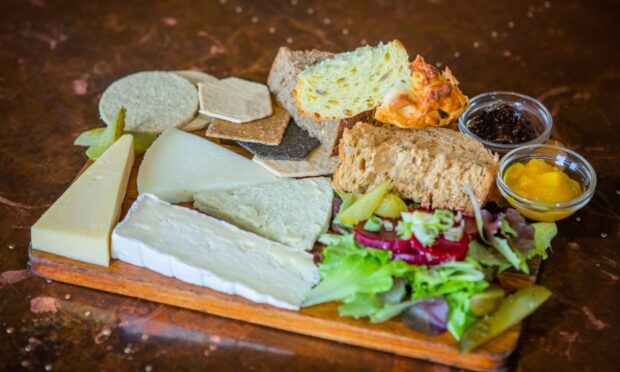With nothing but an idea and a Facebook page, here’s how one farming family in Perthshire has heeded the demand for locally-sourced produce in the last few months.
As the hospitality sector faces ever-increasing coronavirus restrictions, businesses across the country are finding numerous ways to adapt and roll with the punches.
One such firm, Glenkilrie Farm near Blairgowrie in Perthshire, has built up their meat-producing business, Glenkilrie Larder, on social media alone and experienced exponential growth in sales during 2020 as people began to turn to local producers for their food.
Andrew and Lauren Houstoun started the business in 2019, with their meat products debuting on the market at Christmas that year.
More than 12 months later and the couple has grown their consumer list so much so that they spend one day a month hand-delivering their products to households in Perthshire and another day in Aberdeenshire, all from orders placed through their Facebook page, which the couple believe is what helped them get through a tumultuous year for the industry.
Lauren said: “Everything we have done so far since we started has been done online, via social media, and that’s where the majority of our trade and customers have come from.
“We’ve done really well that way and did particularly well at the beginning of the pandemic. As the restrictions got tighter on the hospitality sector, that affected us a little bit but Christmas sales for 2020 were really good.
“We began trading in December 2019 and if we compare that to December 2020, our sales have doubled. Constant social media content and a regular newsletter has helped enormously to spread the news.”
Andrew added: “The real wake-up call for us has been the demand for convenience food and that’s quite hard for us to cater for entirely because we’re still supplying a raw product. We’re not at the stage yet of going down a pre-prepared meal route.”
Establishing the larder
So how does it all work and what does a typical day look like for the couple?
Andrew and his parents, who also live on the farm, rear the animals, while Lauren manages the larder side of the business and manages deliveries.
“I farm in partnership with my parents and we have one full-time employee, but the meat side of things, Glenkilrie Larder, is a separate business with me and Lauren,” revealed Andrew.
“We set up our own business within the farm. It was just a much easier way of doing it and it gives us an opportunity to see how each business – the farm and the larder – is performing and has given us an opportunity to build up our own business from home.
“We’ve got 160 suckler cows, 1,100 breeding ewes and 55 deer hinds. Between my dad and myself we share the management side of things and what goes on on the farm day to day. We use contractors a little but most of the time we do all of the jobs ourselves.”
Lauren continued: “On the first weekend of every month we do a fresh food delivery, in which Andrew and I personally deliver within a 30-mile radius of Glenkilrie in to Angus and Perthshire. That will be on the first Saturday, then on the Sunday we do Aberdeenshire as that’s where I hail from and we have a lot of followers from up there – so we decided we’d dedicate a day to them.
“Those are our fresh deliveries, but we always have frozen meat and can also send to anywhere in the mainland UK via courier. A lot of those orders go to London and places like that.”
Food to order
With the majority of us stuck at home in 2020, local producers stepped in to the spotlight more than they ever have before, with Andrew and Lauren being no exception. As demand increased for convenience food at home, the couple began learning more about consumers’ eating habits.
Andrew said: “We used to supply roasts but the traditional Sunday roast isn’t as big as it probably was 20 years ago, so all of a sudden we had this big problem of all these roasts building up because people weren’t buying them. So we’ve had to change what we do with our product to try and make things more fashionable, trendy and attractive.
“Instead of topside roasts, we’re now cutting into minute steaks, steaks for barbecues, strips for stir-frys, stroganoffs, curries, whatever you want. We’ve had to do a few similar things like that for lamb products too. However, the venison is quite good and balances itself out well.
“Then the other major thing is the weather and the seasons here. Christmas is always a real curveball, too, because people’s eating habits totally change and roasts suddenly do become popular again. But then as we go into the summer months, everybody wants steaks, sausages and those types of products.
“So we’ve learned a lot about customer eating habits over the lockdown period and we’ve thought a lot about what more we can do. I think there are a lot of options out there.”
Lauren added: “It’s knowing how to balance out the meat we get each month based on what we think customers are going to order. Then utilising the meat that’s not so much in demand so it doesn’t go to waste.
“During the summer we were making lots of roast cuts into the sausages and burgers and barbecue-friendly steaks. In December, we needed every roast back for Christmas. It’s just about balancing it and using the meat wisely. But it’s also really interesting.
“We both come from families who have always had the Sunday roasts and the home-cooked meals. We’re used to that, but I had someone once ask me about meatballs and I said we don’t make meatballs but told them they could buy mince. They were a bit confused about how to make their own from that. So I think people just want things to be easier.”
Getting the word out
As the pandemic took hold last year, there was growing demand for sourcing local produce, there was also an obvious disconnect between some consumers and certain cuts of meat, which the team was able to help alleviate through social media.
“With the venison in particular, we really noticed a disconnect between people understanding the difference between the raw product we supply and what they might find in the supermarket,” said Andrew.
“We have a lot of people buying venison from us regularly, but initially some people had maybe tried it in a restaurant or at someone else’s house and it wasn’t something that they felt comfortable cooking themselves.
“Now people are starting to realise that most things you can do with beef you can also do with venison – the list is endless. And that’s sort of where the social media aspect has a huge influence as Lauren’s always putting recipes up and ideas and showing people what can be created, which we’ve found is a much easier way of putting it across to people.”
Lauren continued: “I also put out a newsletter regularly. Our briskets weren’t really selling so we did a pulled barbecue brisket recipe, which is so simple, and people knowing what to do with the cuts of meat really helps – so we shared that in the newsletter.”
Quality meat assurance
They are one of the newest members of Quality Meat Scotland’s (QMS) Scotch Beef Club, which the couple say helps build trust between consumers and farmers.
Andrew continued: “We’ve only just very recently joined the Scotch Beef Club with QMS. We’d looked into it before but never took it any further because we’d put so much work into our own brand and telling that story.
“But QMS came to us and we were working with them already on the farm because we’re producing both Scotch assured beef and lamb, which we feel is really important. That’s almost like our connection of trust between the farmer and the consumer.
“There’s a lot of potential for us to work with QMS and keep that trust between customer and farmer.
“There seem to be a lot of negative stories out there not just about meat, but about food in general. We have some of the highest standards in the world here in Scotland and I think it’s really important that we help to maintain them.
“But we also want to get across to the consumer why we have them and that reassurance that if you are buying that brand, then you know you’re buying something that has been produced and processed at home and that you’re supporting a local family.
“In a year’s time, we don’t know what’s going to be landing on our shelves, so people may start to look for more quality assurance in their food.
“In terms of Brexit, a massive step occurred before a deal was made last year in which the major supermarkets signed up to buy and sell only British beef and lamb. That was always our biggest risk – was cheap imports coming in and basically undermining what we’re all about and why we farm to the standards we do.
“If the supermarkets continue with that commitment and our home market is full, there’s a lot more potential for the meat industry to be stable regardless of what happens in the future.
“I think, overall, more and more consumers are going to try and make a connection with their local farmer and we’re not the only ones who have built something like Glenkilrie Larder.”
